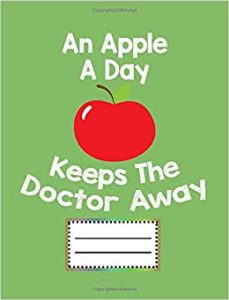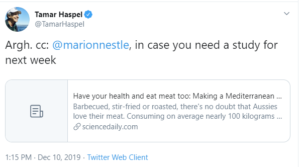Industry-funded comment of the week: Tea, this time
Perspective: The Role of Beverages as a Source of Nutrients and Phytonutrients. Advances in Nutrition, nmz115, https://doi.org/10.1093/advances/nmz115. Published: 22 November 2019
Conclusions: “Modest shifts in beverage choices can help close the gaps between current intakes and dietary recommendations…[e.g.] Replacing SSBs with water, low-sodium tomato juice, nonfat milk, or unsweetened coffee or tea.”
Funder: “Supported by The Tea Council of the USA (to EJJ).”
Comment: This is a lengthy review of the health effects of a range of beverages—milk, soft drinks, sports drinks, alcohol—as well a coffee and tea. Of tea, it says:
Tea is a major contributor to beverage intake in the US adult population with ∼1 of 3 adults reporting regular consumption on any given day. Tea provides few nutrients (∼2% of potassium intake in the United States), although it is considered to be a significant contributor to total fluoride intake….Green tea consumption was significantly inversely associated with CVD and all-cause mortality, whereas black tea consumption was significantly inversely associated with all-cancer and all-cause mortality…The evidence is accumulating that coffee and tea also have health benefits (see above) and are concentrated sources of dietary phytonutrients.
The discussion of tea is a small part of this review. Did the Tea Council get what it paid for? You decide.



